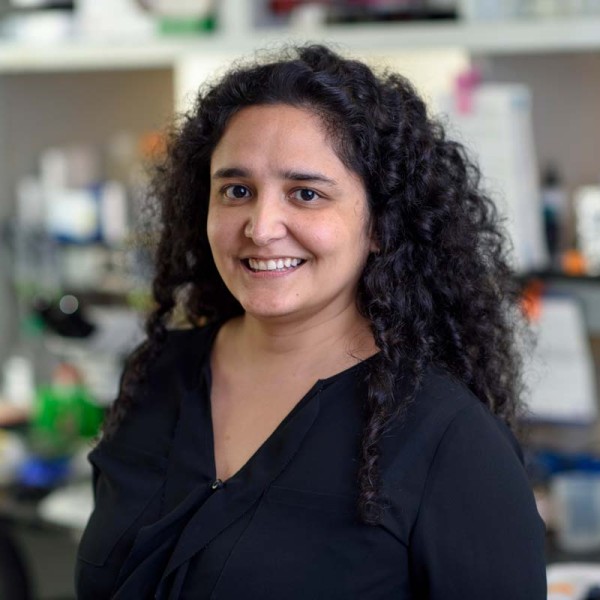LBCA: Tell us a little about your expertise, your ILC research, yourself, and why you think it is important to focus on lobular research?
Dr. Pareja: I am a breast pathologist and physician-scientist at Memorial Sloan Kettering Cancer Center in New York City. I have a profound commitment to translational breast cancer research and one of my passions is the study of special histologic subtypes of breast cancer, in particular of ILC. I am seeking to understand the molecular underpinning of lobular breast cancer, with a special focus on those cases that lack CDH1 mutations. In my view, ILC represents a truly unique subtype of breast cancer, with a distinct biology, presenting tremendous opportunities that could be investigated and leveraged for the benefit of ILC patients.

LBCA: Can you tell us about your most important research related to ILC, how your research evolved your thinking, and its applications to clinical management?
Dr. Pareja: The hallmark alteration of ILC involves inactivation of CDH1, a gene encoding for the protein E-cadherin, crucial for cell-to-cell adhesion, which causes the distinctive discohesive phenotype that characterizes this breast cancer subtype. While most ILCs harbor CDH1 mutations, a significant subset of them do not, despite exhibiting a lobular morphology. My research focuses on the identification of alternative molecular mechanisms driving ILC. Through the integration of traditional pathology approaches, whole genome sequencing and artificial intelligence-based methods, my work has uncovered novel molecular mechanisms of CDH1 inactivation, as well as molecular alterations affecting other critical cell adhesion genes in ILC. These findings provide support to the notion that ILC represents a convergent phenotype, wherein different molecular alterations affecting the same pathway contribute to its genesis, and provide the foundational basis for enhancing ILC diagnostic tools and optimizing the care of ILC patients.
LBCA: Can you leave us with a thought about what’s next for you, what do you see coming on the horizon?
Dr. Pareja: I have a deep commitment to ILC research, and moving forward, I plan to intensify my efforts to unravel the molecular uniqueness of this disease further. I firmly believe that comprehending the molecular basis of this special breast cancer subtype holds the key to improving its diagnosis and developing transforming ILC-specific therapeutic strategies. I am confident that these efforts will allow us to deliver innovative and excellent care to ILC patients, ultimately improving their outcomes.
LBCA: How did you become involved with the Lobular Breast Cancer Alliance?
Dr. Pareja: My involvement with the LBCA originated from my research interest in ILC. Through my investigative work in this field, I had the unique opportunity to get to know exceptional investigators and patient advocates affiliated with the LBCA. Witnessing their remarkable dedication and selfless collaboration was truly inspiring. When the opportunity presented itself to contribute as a member of the LBCA scientific advisory board, I seized it immediately, and have not looked back since! Being part of such an outstanding organization and having the opportunity to engage with such a special group of individuals is an immense privilege to me.
LBCA: Can you talk about working with patient advocates and why it is important to you and your research?
Dr. Pareja: Working with patient advocates is absolutely pivotal to advance ILC research. I consider myself truly fortunate to engage with patient advocates through the LBCA. Our discussions are really inspirational, motivating me to push the boundaries of my research work. Moreover, these interactions are truly enriching, as patient advocates generously offer fresh and innovative ideas and perspectives that stimulate new research questions. It’s truly a privilege to have their input, guiding our research efforts based on the experiences of those affected by ILC.

